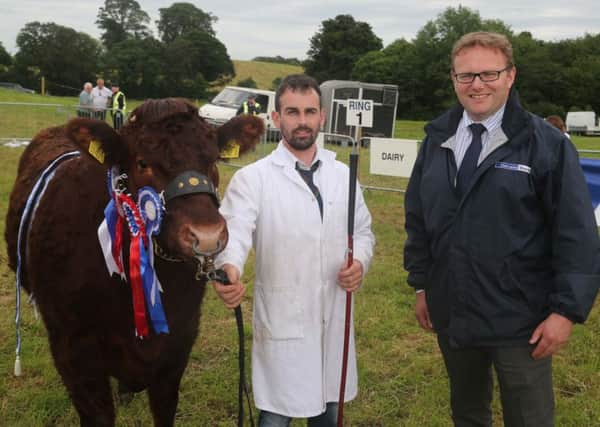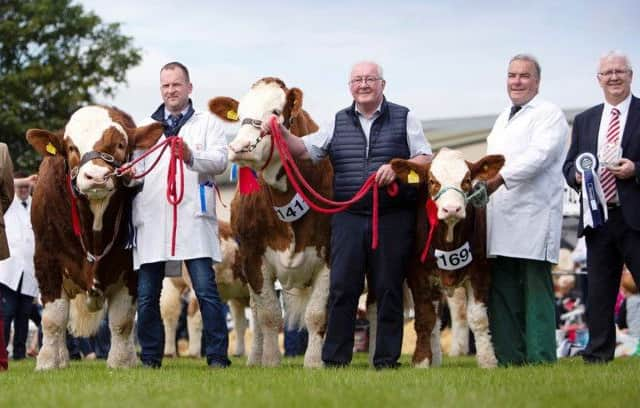Shows give sector reasons to be optimistic


The summer show season is a chance for farmers and producers to showcase just why Northern Ireland has such a great reputation for producing high quality livestock and food. As lead sponsor of the shows, Danske Bank’s specialised team of 16 dedicated agribusiness managers have travelled many miles over the last two months. From Ballymoney to Armagh, we are committed to supporting a sector that continues to overcome any challenges and turbulence that comes its way.
One thing that has impressed me this summer is the quality of livestock presented at the shows. The positive correlation between good stock and the exhibitors at the shows is no coincidence. In a continuous cycle, innovative exhibitors create improvements that are felt throughout the industry. The small details matter, from what an animal is fed to how it is reared. As a result, good stock will always drive a premium price.
Advertisement
Advertisement
Our local agrifood producers have also impressed over the last few months. From the largest agribusinesses right down to artisan producers such as Ballylisk Cheese, the show season has been a shop window that has attracted interest from around the world. That is reflected in the record number of Great Taste awards given to local producers last month, such as Neill’s Flour and Henderson Group.


We know it hasn’t all been smooth sailing in 2019 for the agriculture sector. However, the show season provides an opportunity for like-minded farmers and producers to share their experiences. Existing challenges have remained from last year and we’re still without a functioning government to make decisions to deal with local agriculture issues, decisions that are affecting the future of farming in Northern Ireland.
Milk and beef prices have been at a historic low in 2019. We did expect an upturn throughout the year, but dairy prices are volatile and have struggled to get back to levels seen in 2017 and 2018. Margins are being squeezed further and that has created a competitive market, but no farmers I’ve spoken to are willing to be in a race to the bottom.
Of course, there is no escaping Brexit. Speaking with customers, it is clear there is still frustration and confusion around what future trade arrangements are going to look like after the 31st October deadline, or whenever Brexit finally happens. The EU is an important export region for Northern Ireland but the UK is potentially going to be trading with the EU and the rest of the world on World Trade Organization terms, introducing export tariffs and additional controls and checks which will also add cost. In order to protect the food industry in Northern Ireland, import tariffs will be needed if there is a no-deal Brexit.
Advertisement
Advertisement
One opportunity post-Brexit is access to new markets such as Japan which recently opened for beef and lamb imports. If the agriculture sector is to flourish post-Brexit, farmers and producers will have to adapt and become more innovative in their approach to services, processes, products and marketing.
A no-deal Brexit would also open the door to a change in the policies that govern farm payments. For years, farmers have been given a poor deal by the EU’s Common Agricultural Policy. Post-Brexit changes to farming policy, if done right, could potentially see local food producers thrive, improvements in biodiversity and animal welfare, and boosts to rural economies. Details so far have been sketchy, but the industry has an opportunity to lobby hard for more favourable conditions.
There may be some challenging times ahead, but the farmers I meet are doing what they can to ensure they are operating as efficiently as they can and being agile in their business plans. We know our local farmers and producers are extremely resilient and Danske Bank is committed to supporting them as they strive to succeed.